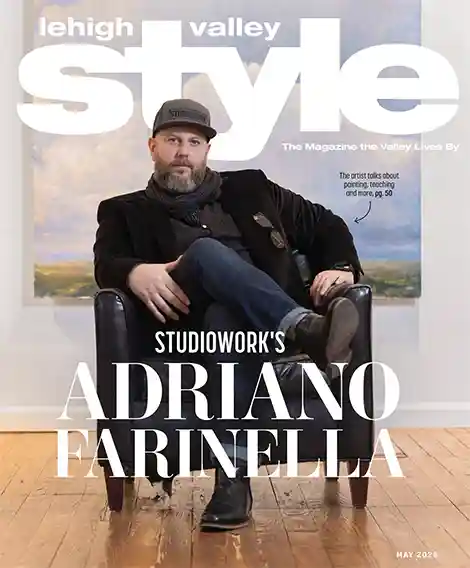
Those who live near the Oleksa farm in Durham Township, Bucks County, are most likely a well-fed bunch. That's because the farm's proprietors, Lois and David, are always more than happy to share the bounty they reap from their nine-acre estate, which includes just about every vegetable in the dictionary, as well as a variety of cheeses, goat's milk and eggs. But one thing you'll never find peeking out from the soil is any kind of cash crop. “This is a hobby for us,” explains David, who retired from his job in human resources with Right Management in Allentown in 2016. “We have no interest in doing this as a commercial operation. We have too many other interests.” Adds Lois: “We're totally invested in the community here. We're not out to make a pile of money from it.”
Although they may not define themselves as farmers by trade, both David and Lois became well acquainted with many of the ins and outs of the profession at a young age. David grew up in Macungie; his grandmother had a small farm nearby. “Even as a small boy, I was working on that farm,” he says. Lois's family owned a 22-acre farm in Williams Township, where she recalls tending to animals and a large garden, as well as canning food, selling strawberries by the side of the road, baling hay and cooling off in a nearby pond. “It was the ideal life, you could say. But it was a lot of work.”
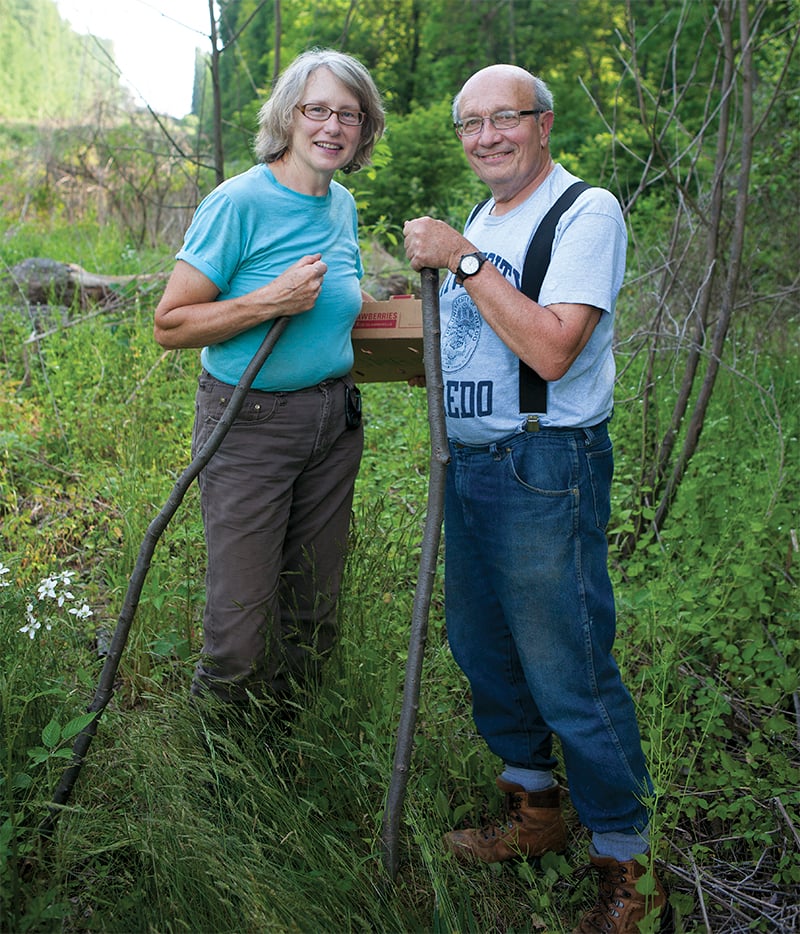
The two met at a Bible study group and married in 1975. David's job with a subsidiary of Bank of America took them out of the Lehigh Valley region for a few years—first to Atlanta and then to the Washington, D.C. area, two places where wide-open spaces are in short supply—but the couple did what they could to stay connected to their agrarian roots. “We had window boxes all over,” says Lois. “We had a rabbit.”
In 1978, when it came time to move back to their old stomping grounds, the Oleksas looked at a variety of properties before the place in Durham popped up on their radar—a place that's just “on the other side of the hill” from where she grew up in Williams Township, Lois says. According to David, the house was built sometime before 1840. “It shows up on a map from that time,” he says. They would come to learn that the property had many uses over the years, serving as a tailor shop at one time and a butcher shop at another.
The couple signed their names to the deed, knowing their new home was a bit of a fixer-upper. “We saw it had potential,” says David. Still, their sweat-equity investment would be extensive, with renovations required from bottom (contending with a basement with a dirt floor) to top (replacing the home's original slate roof) and everywhere in-between (adding on an entirely new kitchen). “We ripped and ripped so much stuff down to the bare bones,” Lois says. The couple took on many of the projects themselves, with help from various family members.
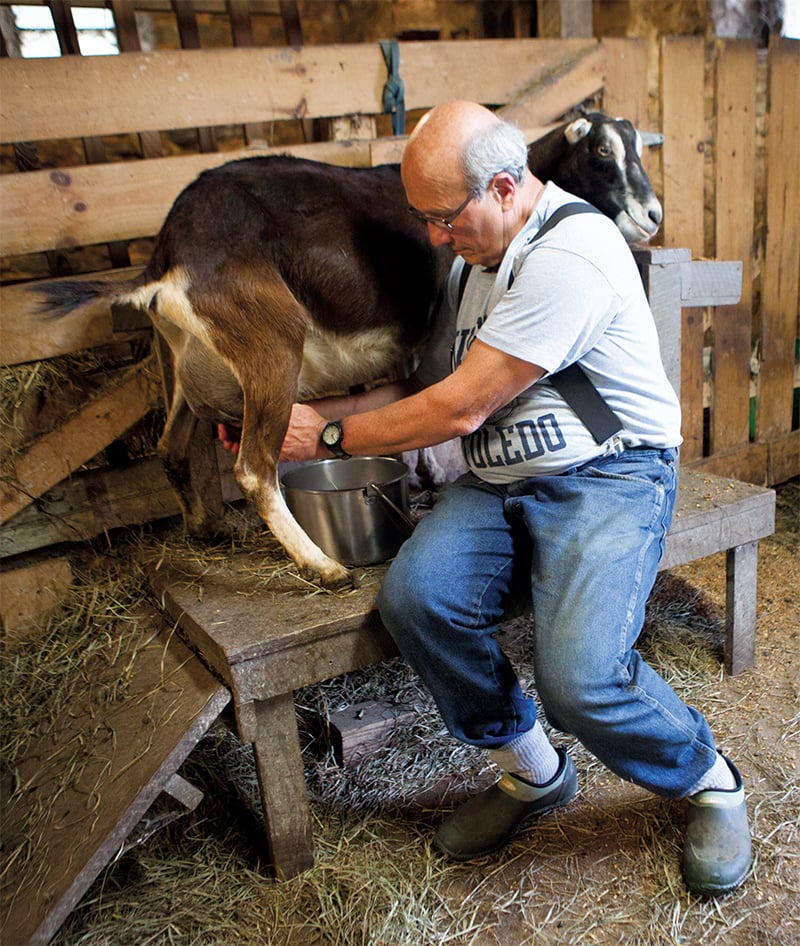
Challenges awaited them outside their living space as well. “We had to rebuild the barn,” David says. “Prior to moving in, the barn had burned down. All that was left was the foundation.” A greenhouse on the property, although a product of an impressive pedigree (the Lord and Burnham brand, which Lois describes as “the Cadillac of greenhouses”), was a wreck that would take three years to remedy. Also, an adjacent potting shed needed a re-do.
But while the Oleksas toiled away on their seemingly never-ending homeowners' “to-do” list, they also began using their farm as a farm. They bought their first chickens in the 1980s, and Lois got busy putting her green thumb to work, growing a variety of vegetables (everything from artichokes to zucchini, according to David) that she sold to local chefs and restaurants. The renowned Chef Tell Erhard, one of the original TV chefs who at one time owned two restaurants in Bucks County, was among her clientele. Lois remembers selling him blue potatoes, which apparently didn't go over so well with his diners. “They were confused by the color,” she says.
With her emphasis on homegrown and fresh (“I would pick the day I called the chef,” she says), Lois was a proponent of farm-to-table before the movement went mainstream. “The quality of stuff is just so great when you grow it yourself,” she says. She wonders if perhaps she was a bit ahead of her time; even so, she says she's happy to see more restaurants using locally grown produce now.
By 1983, Lois was tending to more than just her gardens; the couple's first child, Adam, was born that year; he was joined by sisters Sara and Karyn in 1985 and 1989, respectively. Lois often had the children in tow while making her deliveries, and her pint-sized growers-in-training picked up a thing or two along the way. “People would say to me, ‘How does your kid know what arugula is?'” she says with a laugh.
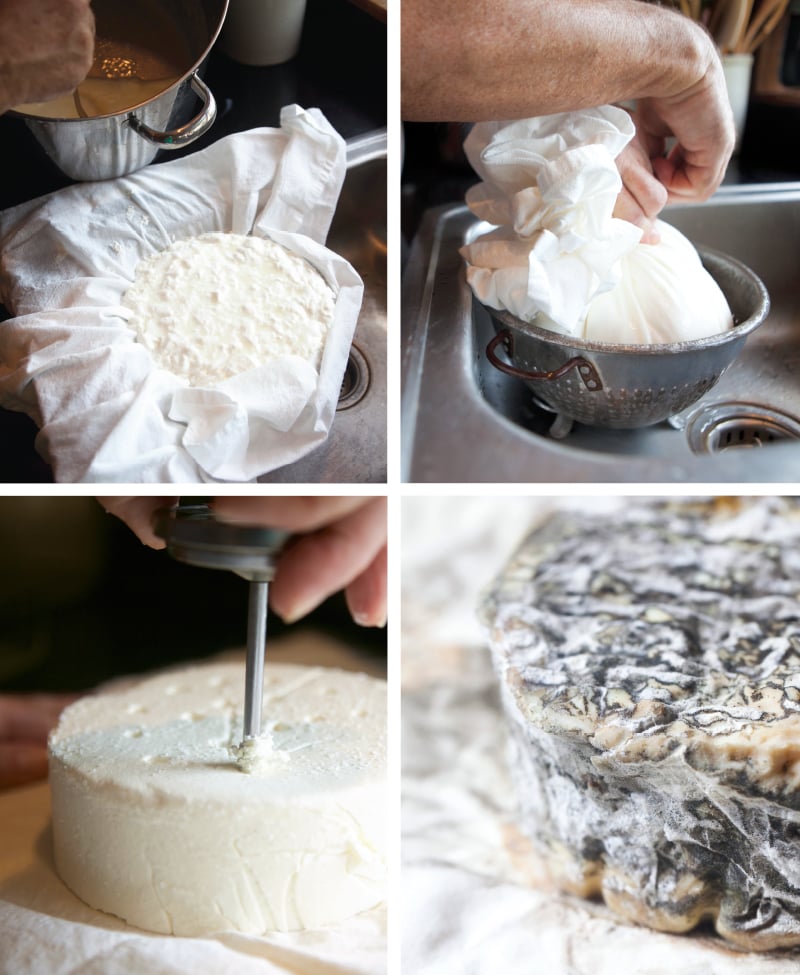
While Lois is happy to toil in the soil, David's domain is the barn, which welcomed its first goats—a mother and three babies—in 1996. Immediately, David faced a farmer's quandary: how to best wean the babies off of their mother's milk. Solution? David designed a “bra” of sorts, for mama goat, leaving the milk available for human consumption and for making cheese, a hobby David has embraced. He's crafted everything from mozzarella to feta to his very own brand of blue cheese, which he's coined “Durham Blue.”
Another Oleksa invention? The goat-naming system employed on the farm; really, it's as basic as following the alphabet. In 2018, all “kids” born on the farm were given “I” names; hence the reason you'll find an Ivana and an Ivanka cavorting in the pen. This year, “J” is the magic letter and in 2020, “K” will be in the spotlight. The goats are a playful, social bunch who assist the neighbors in cleaning up after the holidays by happily munching on the pine needles and branches of discarded Christmas trees that are dropped off near their pen.
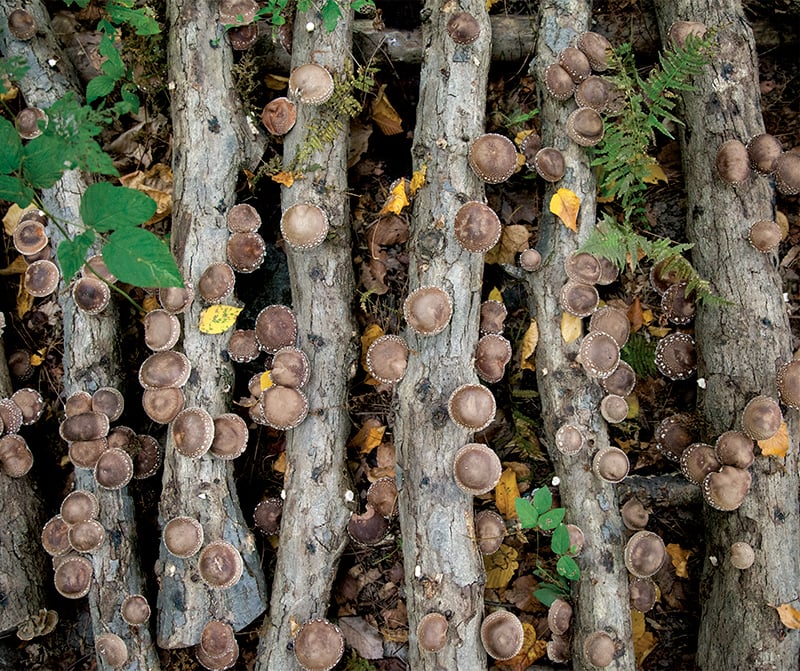
Foraging for unexpected surprises is another part of the fun of living on the farm. “Lois and I are both interested in nature,” David says. “During different parts of the season, we'll go out and look for things.” And sometimes, they'll create their own sustenance from nature's castoffs, as was the case after Superstorm Sandy swept through the area in 2012. “We lost a large number of trees,” David says. “We didn't want anything to go to waste.” After recalling a trip to Vermont in which they observed shiitake mushrooms being grown on logs, they cut some of the fallen limbs into four-foot sections, drilled holes in the wood, and then injected mushroom spawn into the holes. Their first foray into this facet of farming was successful; they're still growing mushrooms today, and have expanded beyond shiitakes to include oyster and nameko varieties.
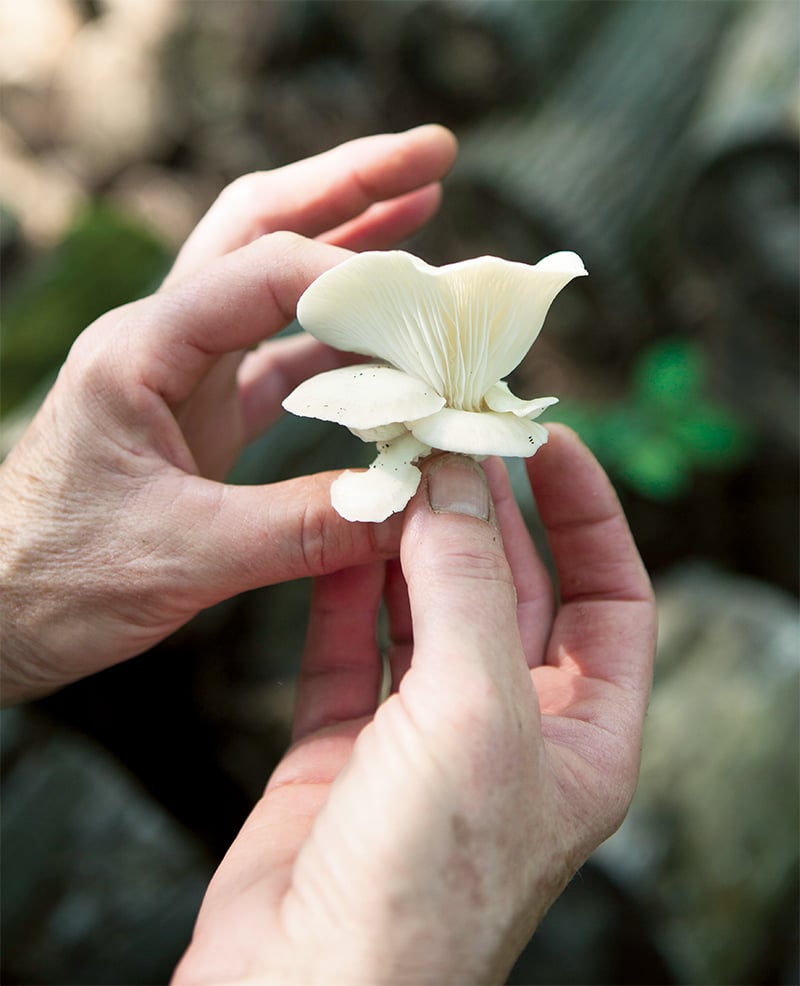
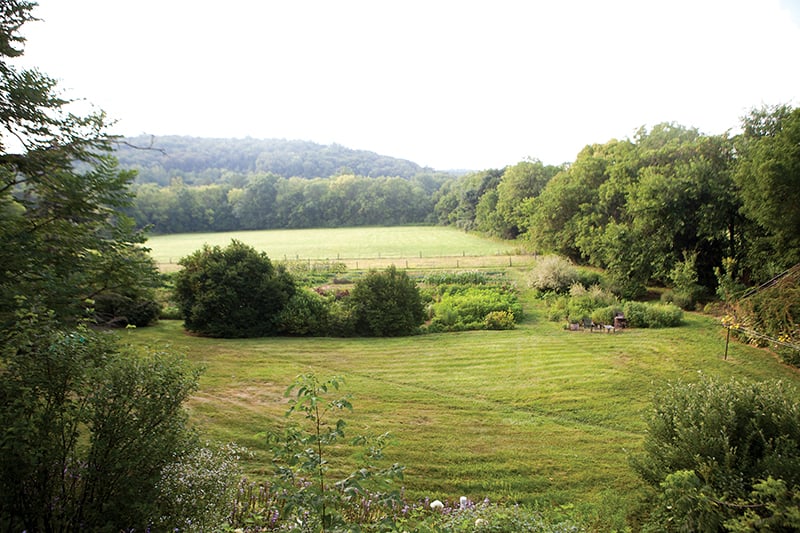
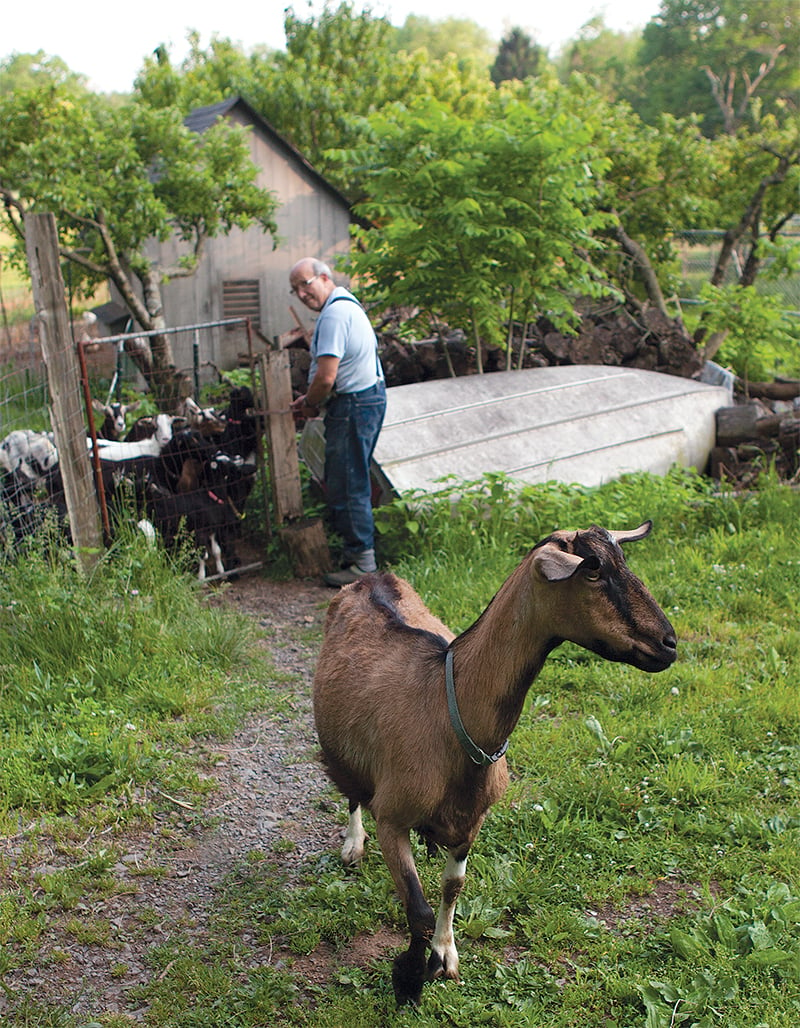
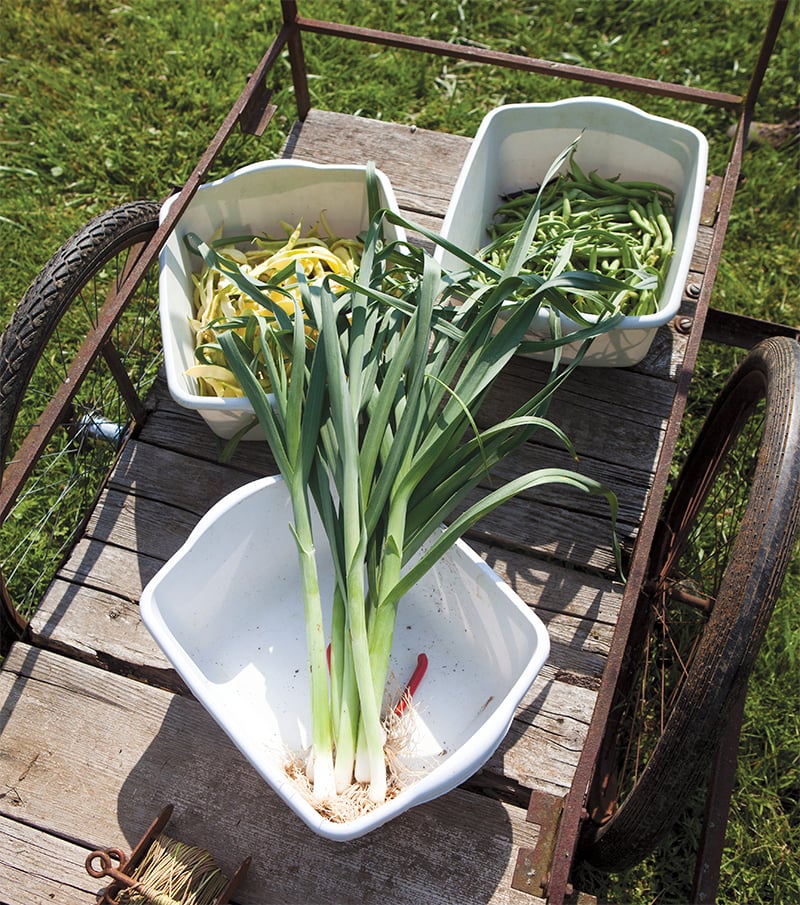
Outside of sharing the goodies they reap from their fields and their small brood of animals, the Oleksas are also willing to share the know-how they've acquired over the years about the lifestyle they love. They've twice participated in a Sustainable Living Expo held at Palisades High School, where students and the public alike can learn about and experience earth-friendly practices and habits. The Oleksas demonstrated mushroom-growing. “It's really rewarding to show someone how something can be done,” Lois says. And that, they both agree, is their real reward. “If we can awaken some people to the better things in life, that's a good thing for us,” says David. Adds Lois: “We're willing to have someone knock on the door and say, we want to learn how to do this. Passing something on is so valuable.”







